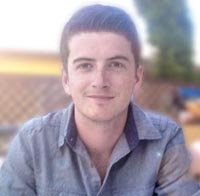Musica e Riabilitazione Dell’ictus: una Sintesi Narrativa dei Trattamenti Musicali Utilizzati per Riabilitare i Disturbi Della Parola e del Linguaggio Conseguenti all’ictus dell’emisfero Sinistro
DOI:
https://doi.org/10.15845/voices.v16i1.789Parole chiave:
left hemispheric stroke, speech and language disorders, music therapy, music and stroke, aphasia,Abstract
L’ictus è una delle principali cause della disabilità a lungo termine. Esso può danneggiare le aree cerebrali associate alla comunicazione, portando a disturbi della parola e del linguaggio.Tali disturbi sono danni frequentemente acquisiti da un ictus dell’emisfero sinistro.Negli ultimi trent’anni sono stati implementati trattamenti a base di musica, più ricerche e applicazioni; tuttavia, il numero di pubblicazioniriguardanti questi trattamenti è limitato.Questo documento utilizza i quattro elementi della struttura di sintesi narrativaper indagare, esaminare e sintetizzare i trattamenti musicali utilizzati nella riabilitazione di pazienti con disturbi della parola e del linguaggio.Una sistematica revisione ha rivelato quindici studi che incontrano i criteri di inclusione indicati. Si sono trovati trattamenti musicaliche includano MIT, MMIT, forme adattate del MIT, il metodo SIPARI e vari metodi che usano il canto e le canzoni.Da una sintesi dei dati, tre temi sono emersi come elementi chiave degli interventi. Essisono: i) cantare canzoni ed esercizi vocali, ii) stimolare l'emisfero destro, e iii) l'uso della prosodia.Questi temi sono discussi e le loro implicazioni per professionisti neo-qualificati sono esplorate.
Downloads
Additional Files
Pubblicato
2016-02-09
Come citare
Draper, K. (2016). Musica e Riabilitazione Dell’ictus: una Sintesi Narrativa dei Trattamenti Musicali Utilizzati per Riabilitare i Disturbi Della Parola e del Linguaggio Conseguenti all’ictus dell’emisfero Sinistro. Voices: A World Forum for Music Therapy, 16(1). https://doi.org/10.15845/voices.v16i1.789
Fascicolo
Sezione
Research
Licenza
Articles published prior to 2019 are subject to the following license, see: https://voices.no/index.php/voices/copyright

